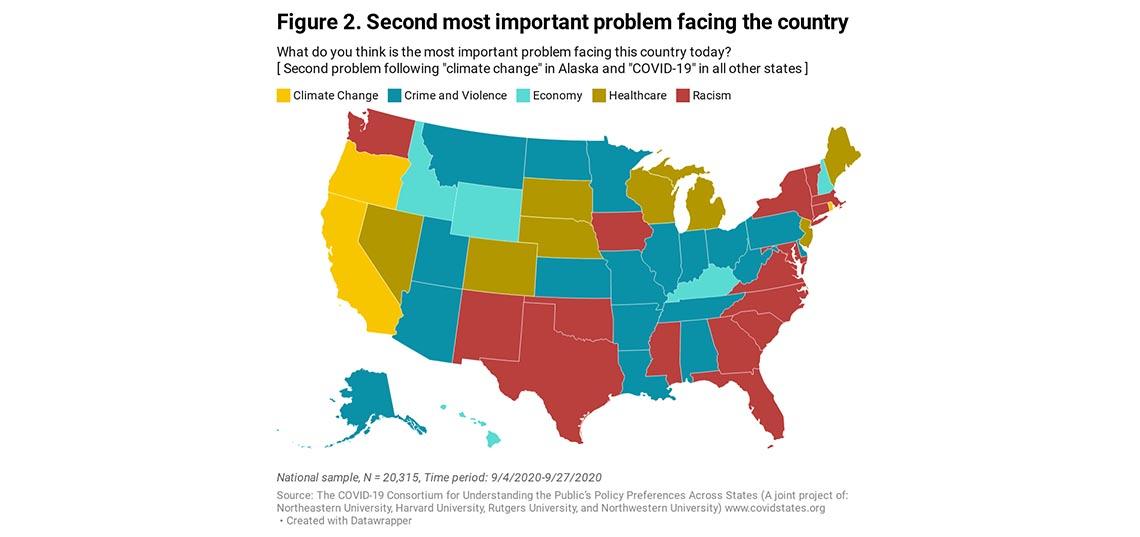
Assistant Professor Katherine Ognyanova has shared new survey data from The COVID-19 Consortium for Understanding the Public’s Policy Preferences Across States, a joint project with her colleagues at Harvard, Northeastern and Northwestern universities.
The researchers polled participants on which issues are, or will be, on their minds as they enter the voting booth on or before Nov. 3.
To view the full report and findings, click here. Among the findings:
- COVID-19 was mentioned as the top problem facing the nation by nearly one-third (32%) of all respondents nationally.
- COVID-19 was the top problem mentioned by respondents in every state except Alaska, where climate change came out on top.
- Other problems mentioned by at least 5% of respondents included racism (10%), the economy (8%), healthcare (7%) and crime and violence (6%).
- Among Democrats, the top five issues mentioned as the nation’s most important problems were COVID-19 (40%), racism (14%), healthcare (9%), climate change (7%) and the economy (5%).
- Among Republicans, the top issues were COVID-19 (mentioned by 25%), the economy (13%), crime and violence (9%), healthcare (6%) and abortion (6%).
- Among white respondents, the top issues were COVID-19 (30%), the economy (10%), healthcare (8%), crime and violence (6%) and race (6%).
- Among Black respondents, the top issues were COVID-19 (33%), racism (25%), police brutality (9%), healthcare (5%) and crime (4%).
- The youngest respondents, ages 18-29, named racism as the most important problem other than COVID-19 in eight of the 10 battleground states (Florida, Georgia, Iowa, Michigan, North Carolina, Ohio, Pennsylvania and Wisconsin).
Ognyanova conducts research in network science, computational social science, social technology, media, civic and political communication.
The researchers surveyed 20,315 people across all 50 states plus the District of Columbia and combined data with 3,676 responses collected in October from battleground states.
More information about the Communication Department at the Rutgers School of Commnication and Information is available on the website.
Image: Courtesy of the Covid States Project
